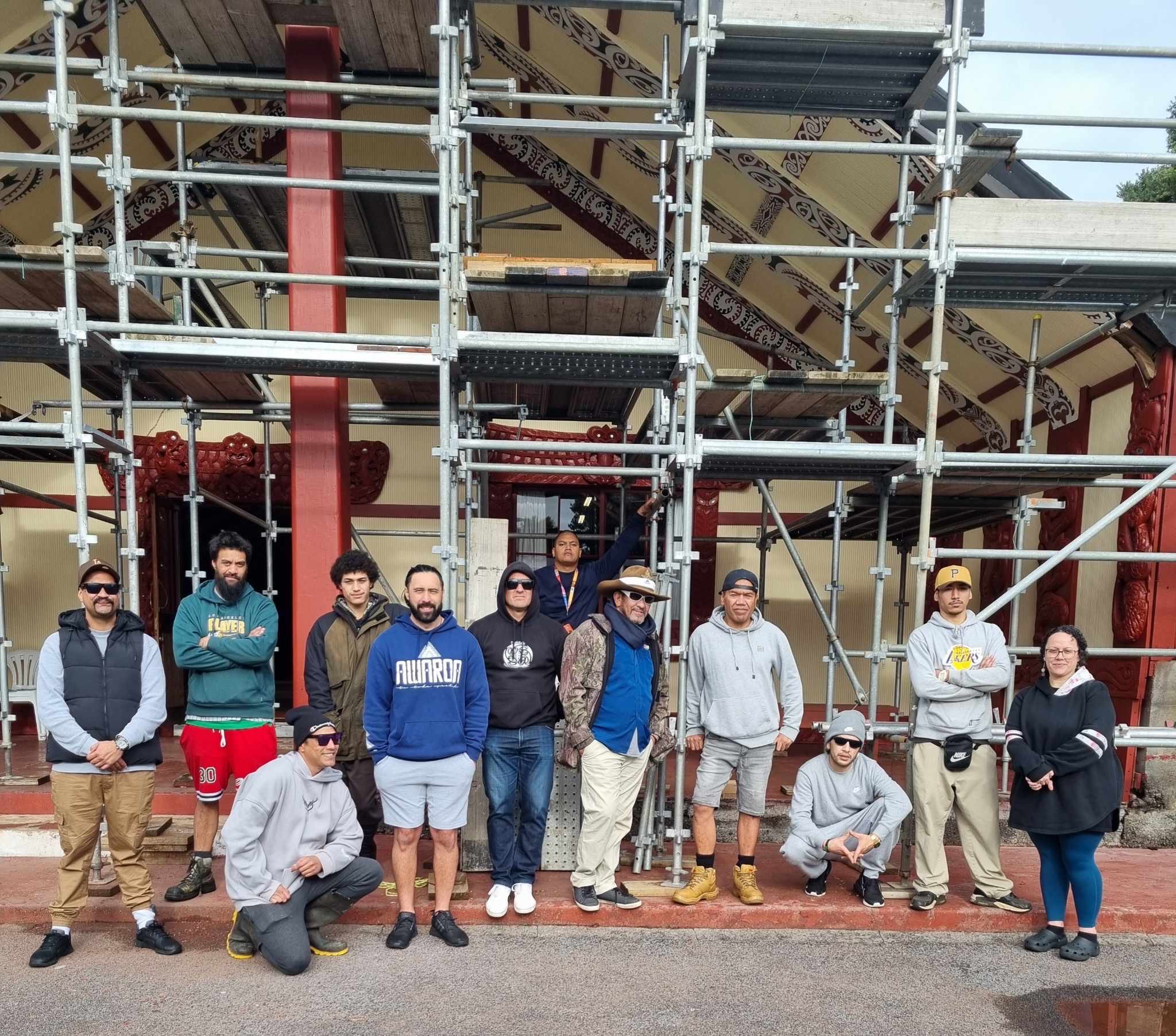A unique rehabilitation program is transforming lives by empowering and reconnecting participants with their cultural heritage which introduces our whānau to ngā toi Māori such as waka ama, rongoa, te Reo, and mau rākau.
The marae-based programme is underpinned by the tikanga of the marae. Te Ihu Waka is a three-day noho (stay) at a marae which helps participants to gain a sense of how whānau live together on a pā. Metaphorical Nan, kui, cousins, aunties, and bros all pitch in with mahi such as dishes, preparing kai for the hangi, and cleaning the whareiti.
Kaitiaki Pae Ora Whānau Ora Zanita Taylor says, “This isn’t your typical, mainstream rehabilitation – it’s a hauora journey through reconnecting to traditional Māori practices, which foster a profound sense of belonging and identity.”
Tui Ora began running the Te Ihu Waka programme on behalf of Ara Poutama – Department of Corrections six years ago, and have since developed an intimate, immersive experience to break down feelings of separation and whakamā from their Māori heritage.
Alongside the daily running of the marae, whānau had the opportunity to experience waka ama, rongoā, mau rākau, te Reo, and kemu. They also contributed to the carving restoration project at Ōwae marae by assisting in the installation of the restored meeting house carvings such as the maihi.
The new skills they learned were shared at their graduation in front of their whānau, friends, and kaimahi. The ropū also prepared the hakari (post-graduation meal), guided by Whetu O’Carroll.
“Our whānau thrived! They immersed themselves into an environment that left them vulnerable. By the end their brotherhood was united. They expressed their willingness to stay connected not only with Tui Ora but each other,” Zanita said. “As the days went by, we noticed a shift, there wore their smiles with pride. It was a beautiful sight to see.”
Deon Kelly, who taught himself te reo in prison, nearly filled the pages of his diary with what he learnt from the wānanga. His most recent diary entries were his pepeha, karakia, waiata, the English translations, and what he interprets each entry as.
“It was fantastic to test my reo journey through visual aid, but I also rediscovered myself and my Māori heritage,” Deon said. “When I write things down, I read it, and once it’s locked in, I can see each page in my head without looking down at my diary. I was able to learn through my way and take everything in.”
Deon faces challenges reintegrating into society after incarceration and wishes for more support to continue his te reo studies. He wants the rehabilitation program to continue, emphasizing the need for better support for Māori before and after serving a prison sentence.
“We need Te Ihu Waka before we’re locked up, better support for Māori while we’re behind bars, and prolonged support afterwards,” he said.
Tui Ora Whānau Ora Kaiārahi Te Waipounamu Patu agrees, putting down the challenge to extend funding to Ara Poutama to keep whānau under the programme for longer at the graduation powhiri.
“Thank you, Ara Poutama, for providing the opportunity for us to deliver this programme. We have all the faith in it, and so do you,” she said.
“We would love to continue the programme so our whānau can continue to come together under this umbrella. That’s my challenge to you.”
And when the Tui Ora Whānau Ora Kaiārahi team gets the green light to continue, they are ready.
The plan is to have a robust eight-week follow-up programme that ensures participants continue to receive support and deepen their cultural ties. This continued engagement would help them integrate these practices into their daily lives, reinforcing their progress, and solidifying their connection to their community.
“Te Ihu Waka offers a safe space where whānau are supported, valued, seen, and heard. By planting seeds, we are break down feelings of separation. Our whānau are striving to be better versions of themselves, shifting mindsets and actively implementing change one day at a time. With the ongoing support of Tui Ora and their Te Ihu Waka brotherhood they have a solid foundation to achieve their goals and aspirations,” says Zanita. “This success story is a powerful reminder of the incredible impact that cultural connection and community support has on the journey of rehabilitation.”

